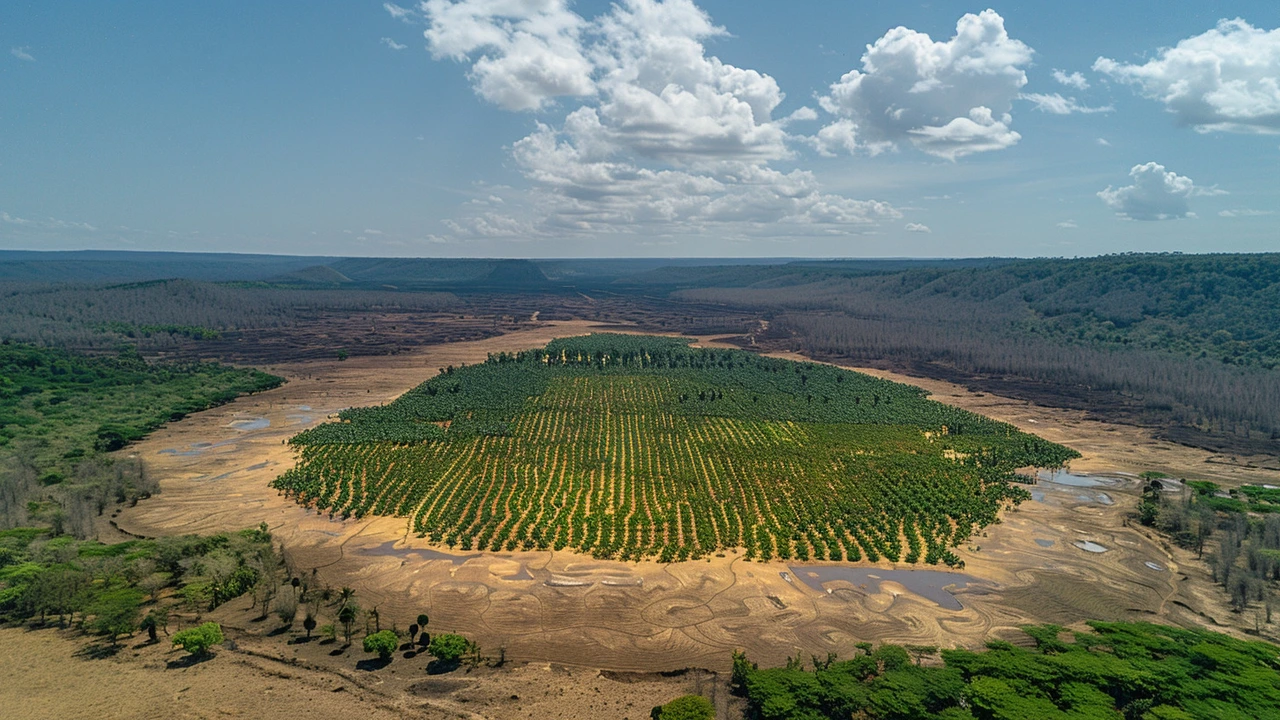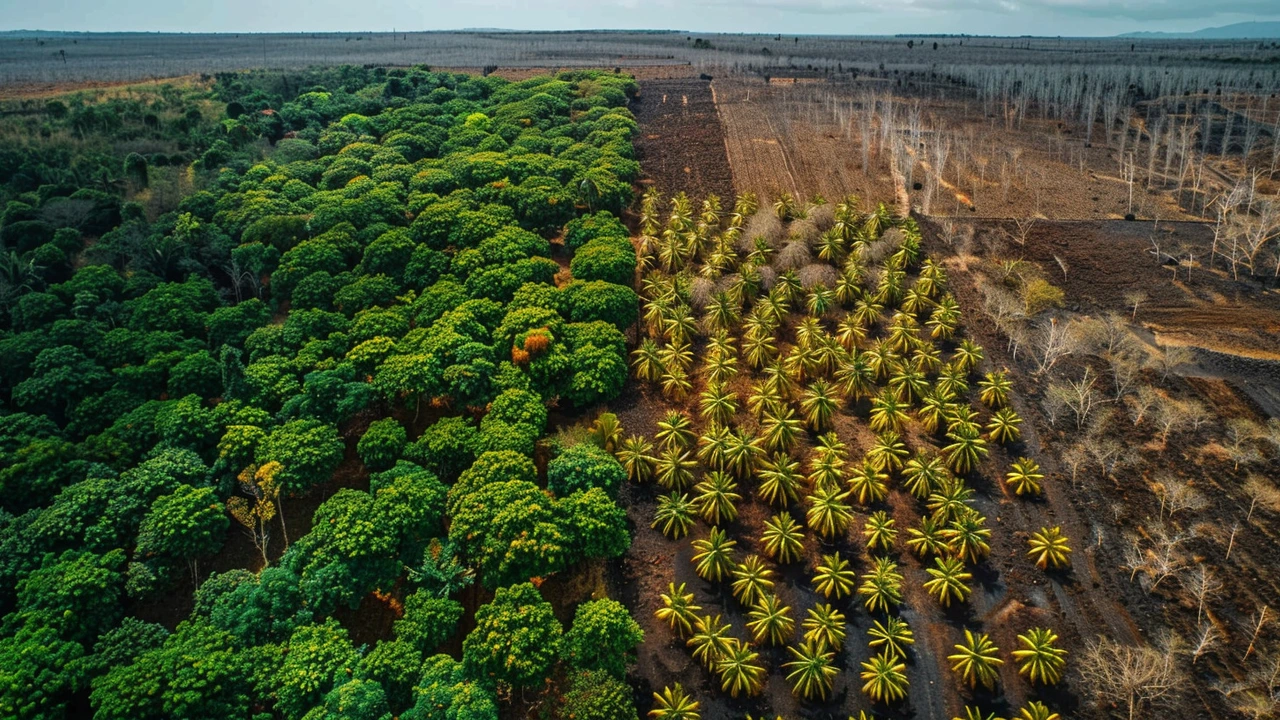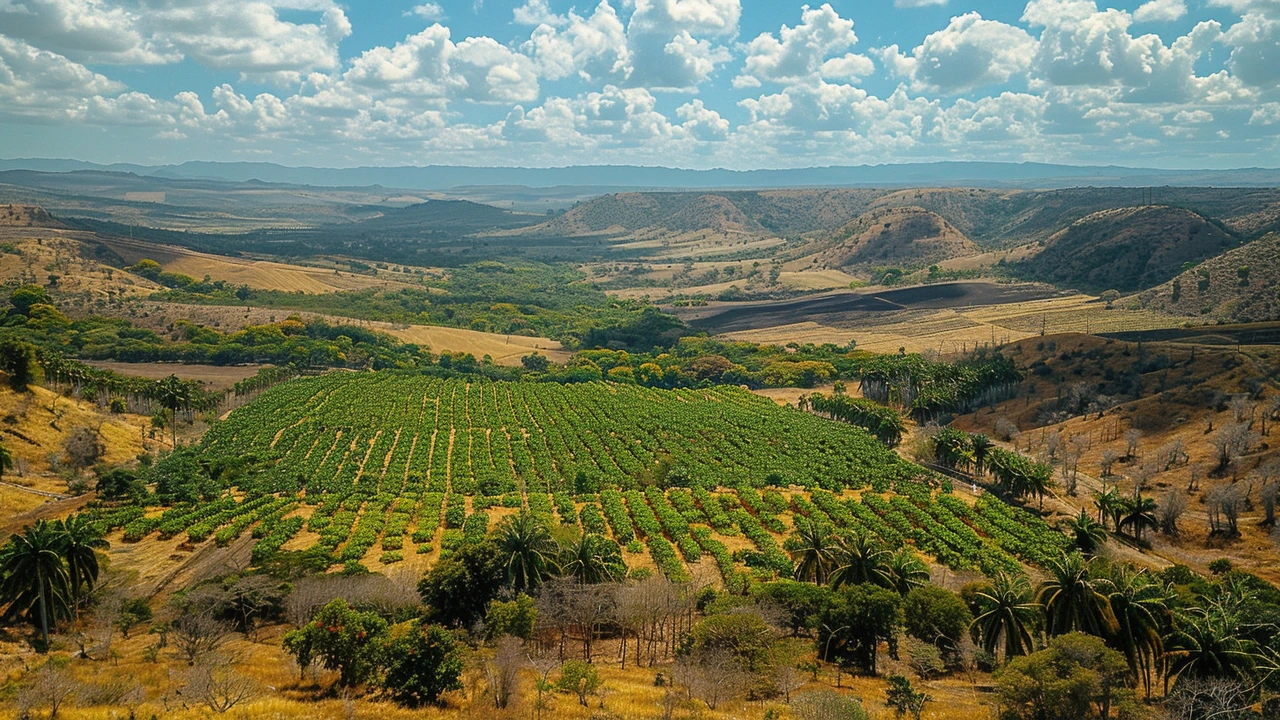The Devastation of Brazil's Semi-Arid Region
In the heart of Brazil's semi-arid region, the harsh reality of desertification unfolds with devastating effects. The story of Manoel Joaquim dos Santos, an Indigenous Pipipã farmer, epitomizes the struggle that many farmers face. Once a season, dos Santos would harvest a bountiful 35,000 coconuts. However, the dream has turned into a nightmare. Today, he finds himself producing zero coconuts as his once fertile land has turned barren and desolate.
The soil that once promised abundant harvests has now become dry and salinized. This unfortunate transformation is the result of a lethal combination of climate change and human activities such as deforestation and overgrazing. These factors have accelerated the degradation of land, leaving farmers struggling to make ends meet and threatening their very survival.

A Growing Problem with Deep Roots
The problem of desertification is not a new phenomenon. In fact, it led to the creation of the United Nations Convention to Combat Desertification in 1994, reflecting the urgency and magnitude of the issue on a global scale. However, despite concerted international efforts, the situation in Brazil has only worsened. The area susceptible to desertification has expanded alarmingly, growing from 274,306 square miles to over 417,805 square miles.
This relentless advance of desertification calls for a robust and strategic response. Alexandre Pires, head of the Desertification Combat Department in Brazil, is tasked with crafting a new national strategy aimed at addressing the crisis. The challenge is immense, requiring innovative solutions and sustained government commitment.
The Socioeconomic Fallout for Farmers
Experts like meteorologist Humberto Barbosa underscore the severe socioeconomic impact that desertification has on farmers. When the land fails to produce, farmers face a bleak future with limited alternatives for survival. The loss of agricultural productivity not only affects individual farmers but also has ripple effects on local economies and food security.
Despite government initiatives, attempts to reverse desertification have sometimes backfired. For instance, irrigation systems installed by the government, while well-intentioned, have contributed to land degradation due to excess salt accumulation. This highlights the complexity of the issue and the need for careful consideration of environmental impacts in any intervention.

Adapting to Harsh Realities
Yet, amid the adversity, stories of resilience and adaptability emerge. Farmers like dos Santos and Francisco Washington Rodrigues have not given up. Instead, they have learned to adapt to the new environment, implementing practices that allow them to make the harsh lands productive again. Their efforts serve as a beacon of hope and demonstrate that even in the direst circumstances, ingenuity and perseverance can pave the way for recovery.
Looking beyond Brazil, success stories such as the Great Green Wall initiative in Africa's Sahel region offer valuable lessons. The project has managed to restore 18 million hectares of degraded land, showcasing the potential of coordinated and sustained efforts in combating desertification. This serves as an inspiration for similar initiatives in Brazil and other parts of the world grappling with land degradation.
The National Implications
Desertification in Brazil is not just an environmental issue; it is a national problem intricately linked to climate change. The urgency to combat it cannot be overstated. It requires sustained government efforts, innovative solutions, and a deep commitment to protecting the livelihoods of those who bear the brunt of this crisis - the farmers.
As Brazil confronts this formidable challenge, the stories of farmers like Manoel Joaquim dos Santos remind us of the human dimension of desertification. Their resilience, struggles, and successes offer valuable insights into the broader battle against land degradation. It is a fight that demands attention, action, and above all, hope.


Phil Wilson
The shift from productive semi‑arid ecosystems to saline wastelands in Brazil represents a classic case of land‑use change driven by anthropogenic stressors. Soil salinization, exacerbated by unsustainable irrigation practices, undermines the hydraulic conductivity essential for coconut palms. Coupled with deforestation, the albedo effect intensifies local temperature anomalies, feeding back into the degradation loop. From a biogeochemical perspective, the loss of organic carbon pools reduces soil structure resilience. Mitigation strategies must therefore integrate agroforestry, precision irrigation, and policy‑level incentives to restore ecosystem services.